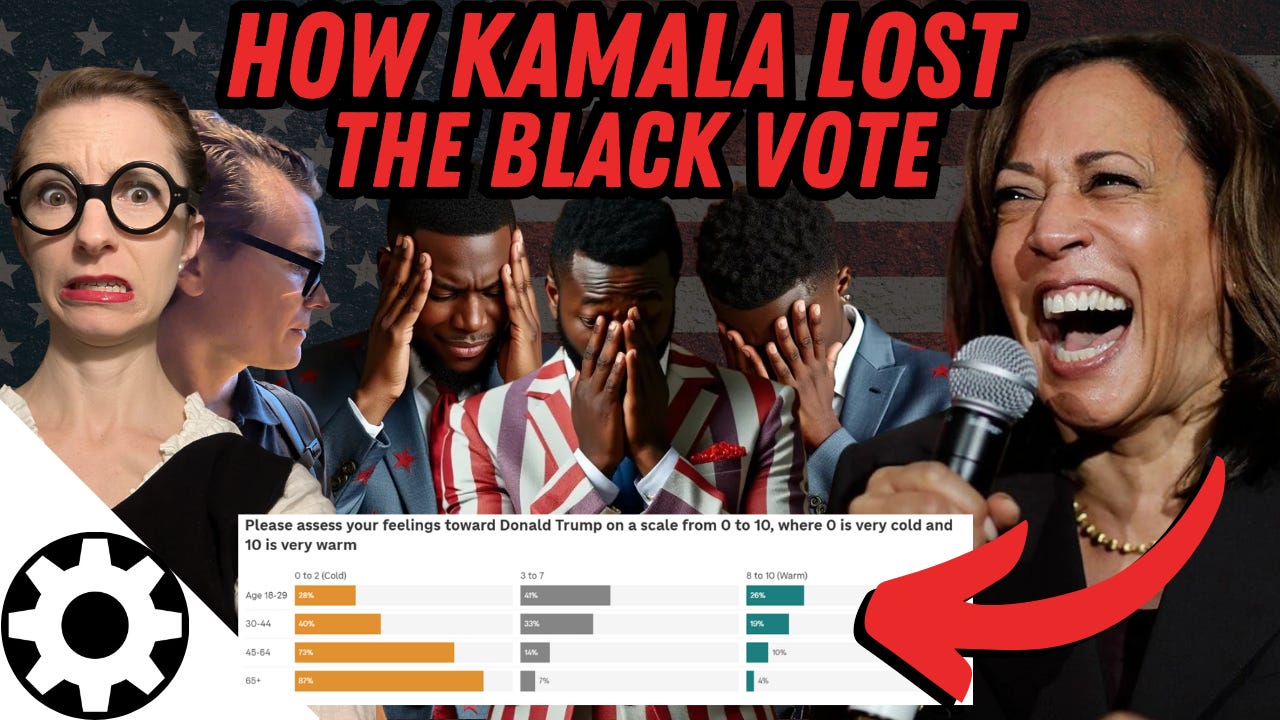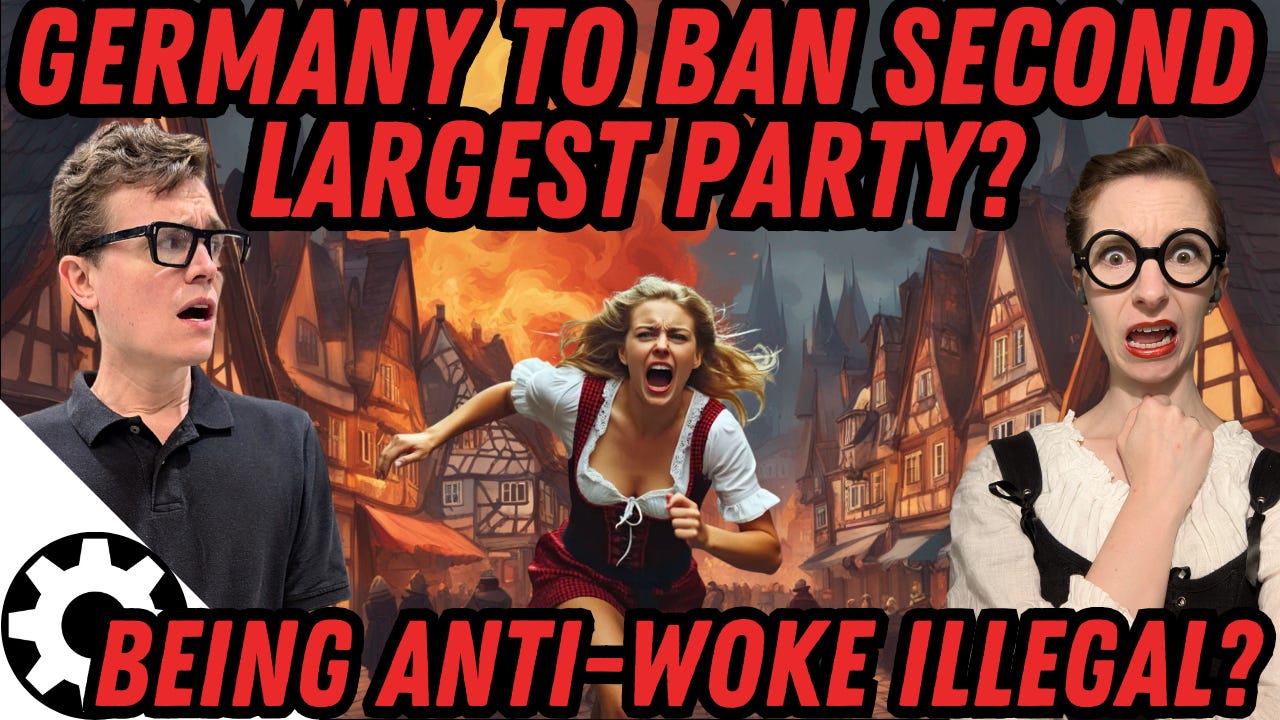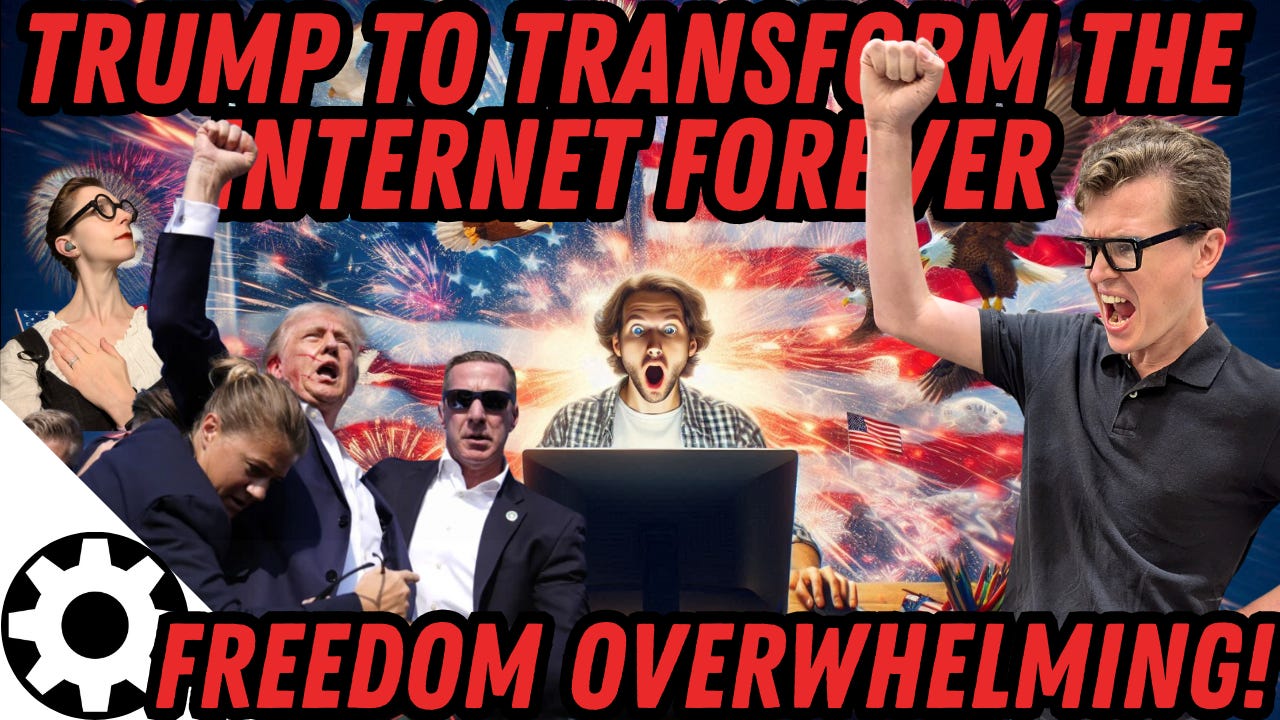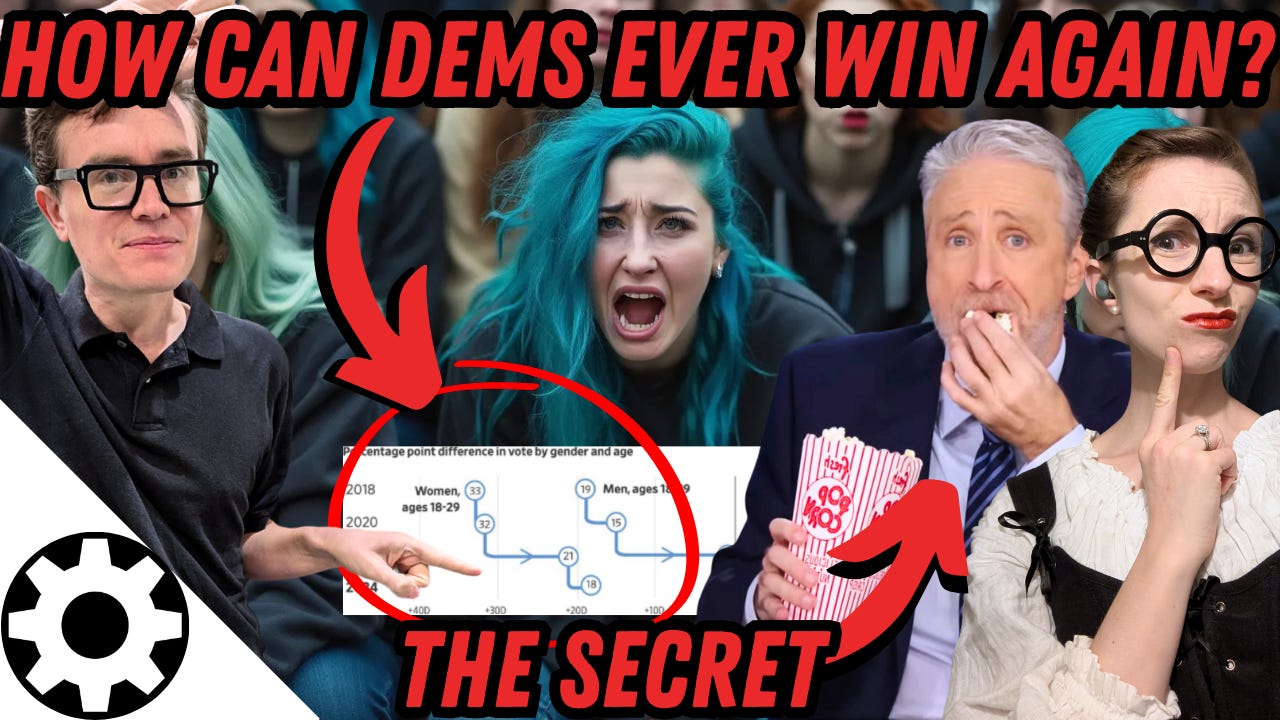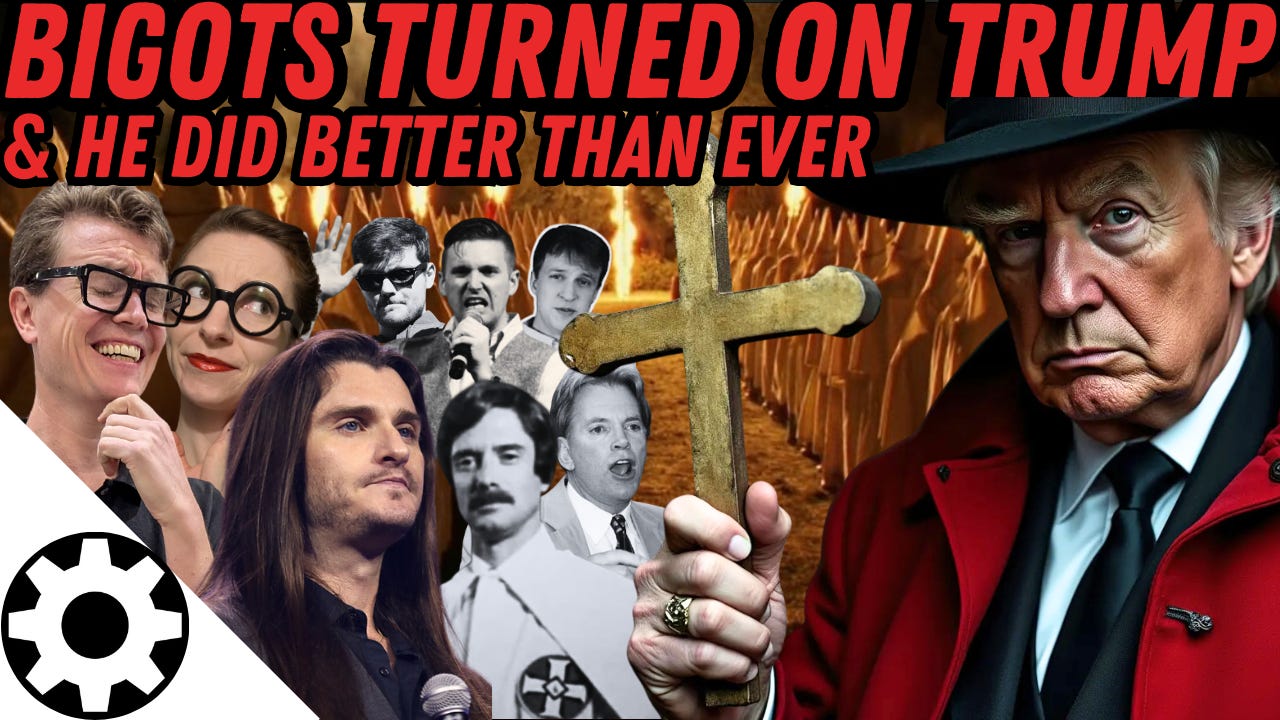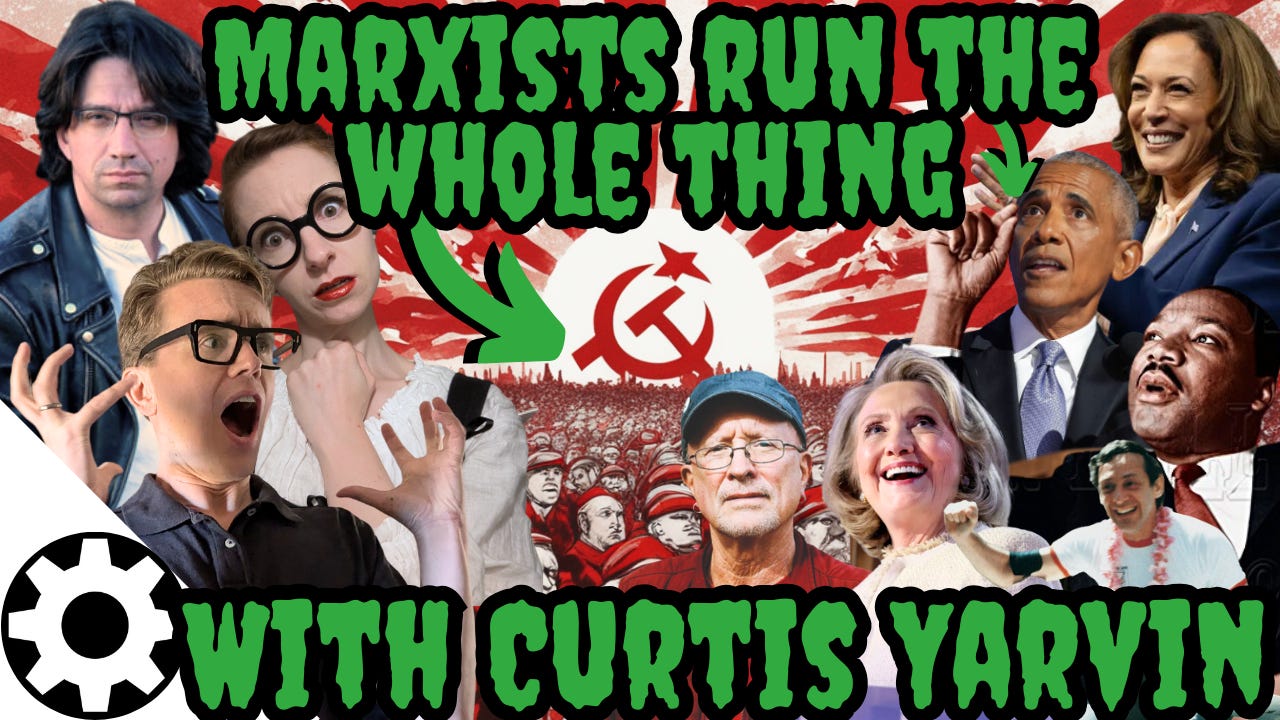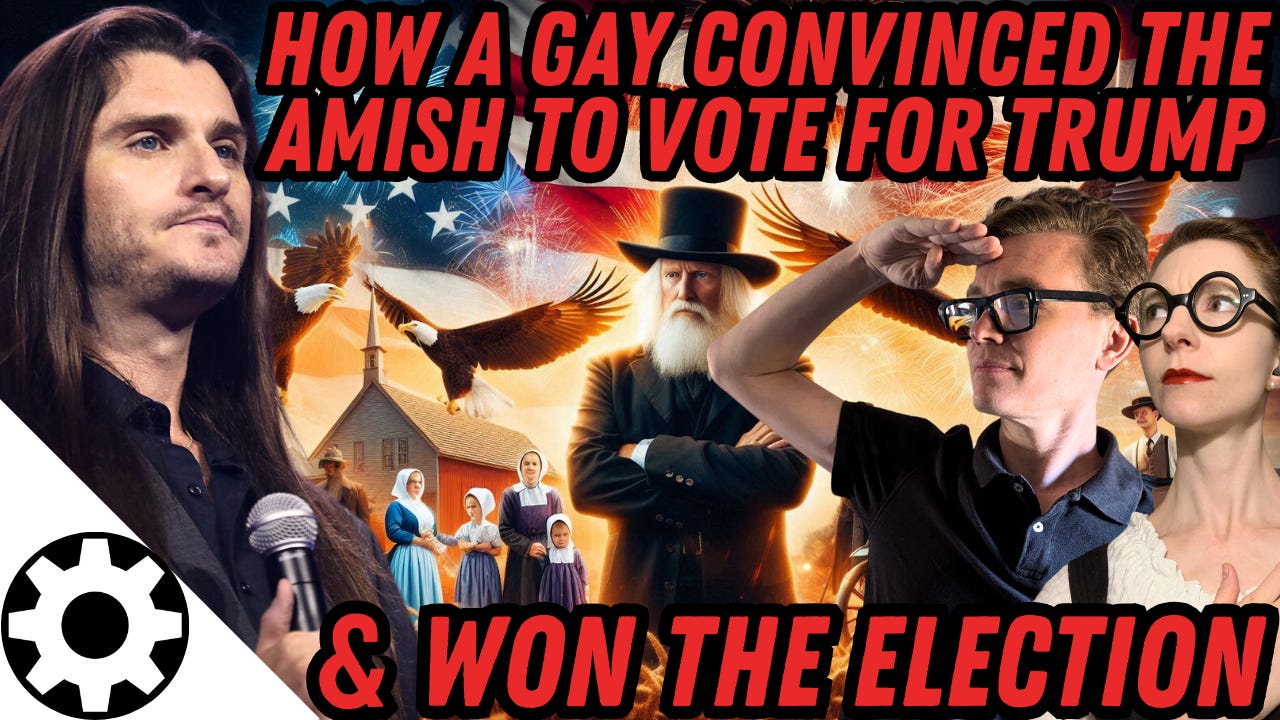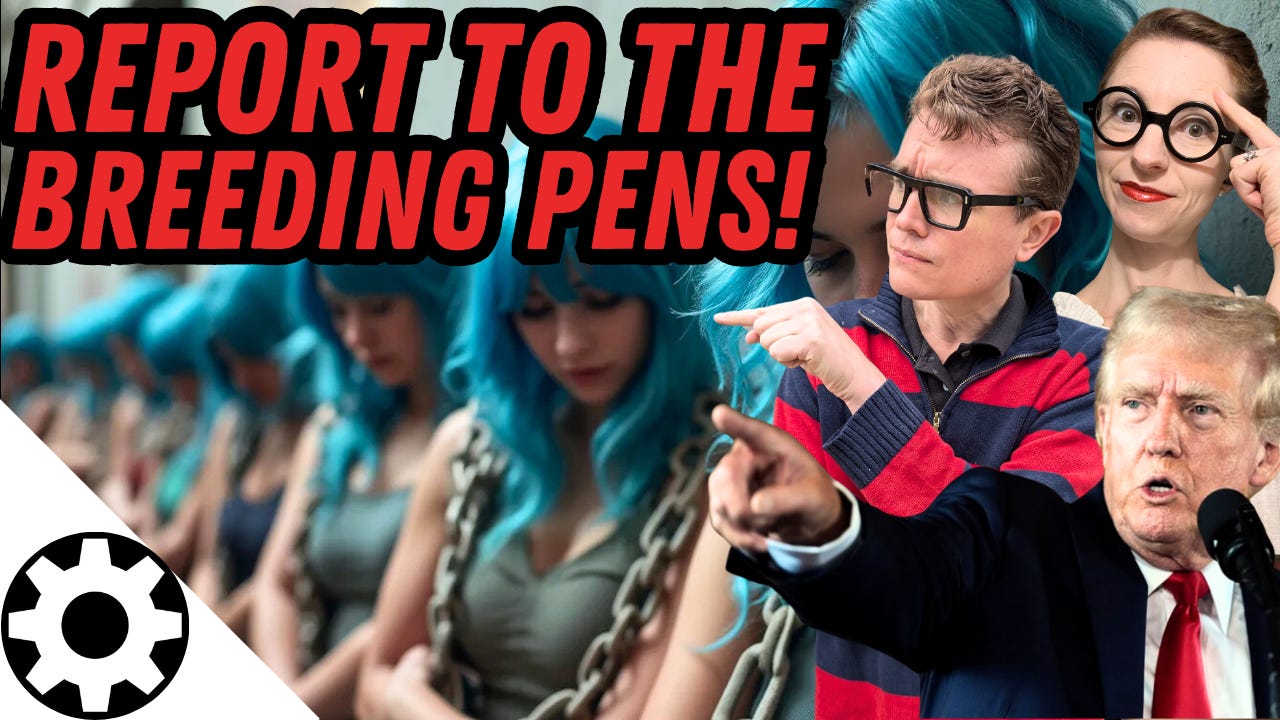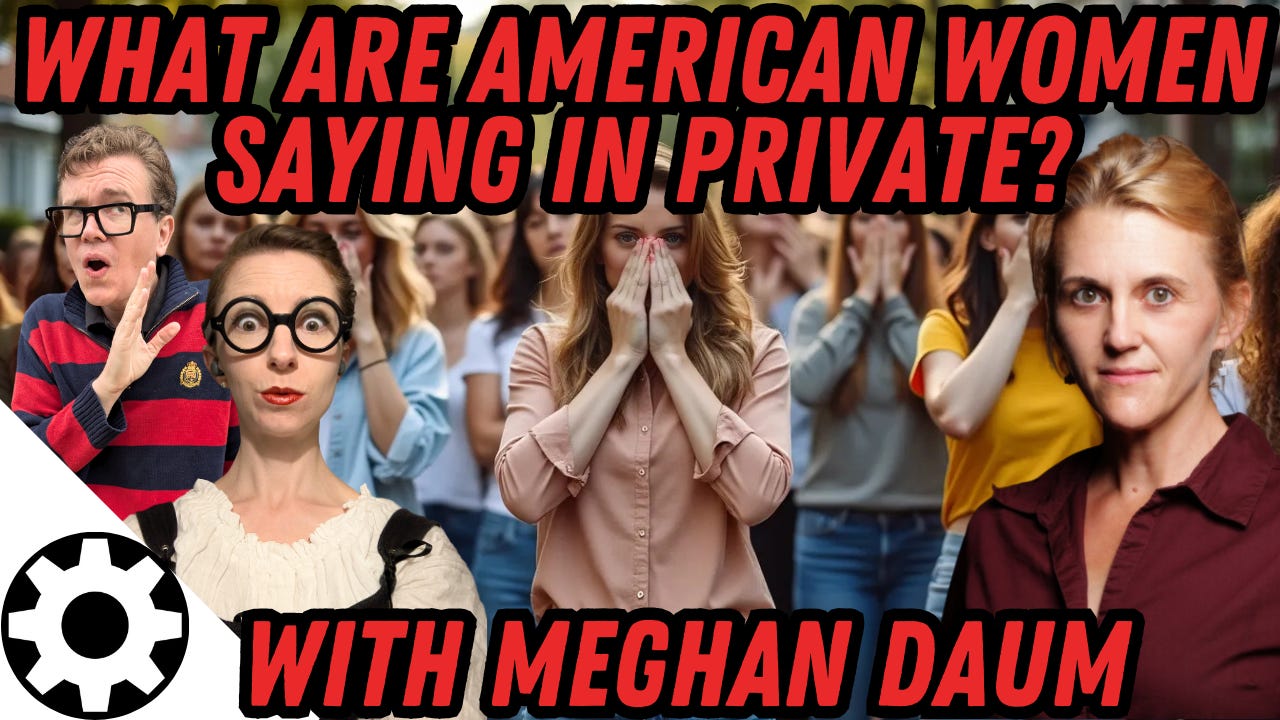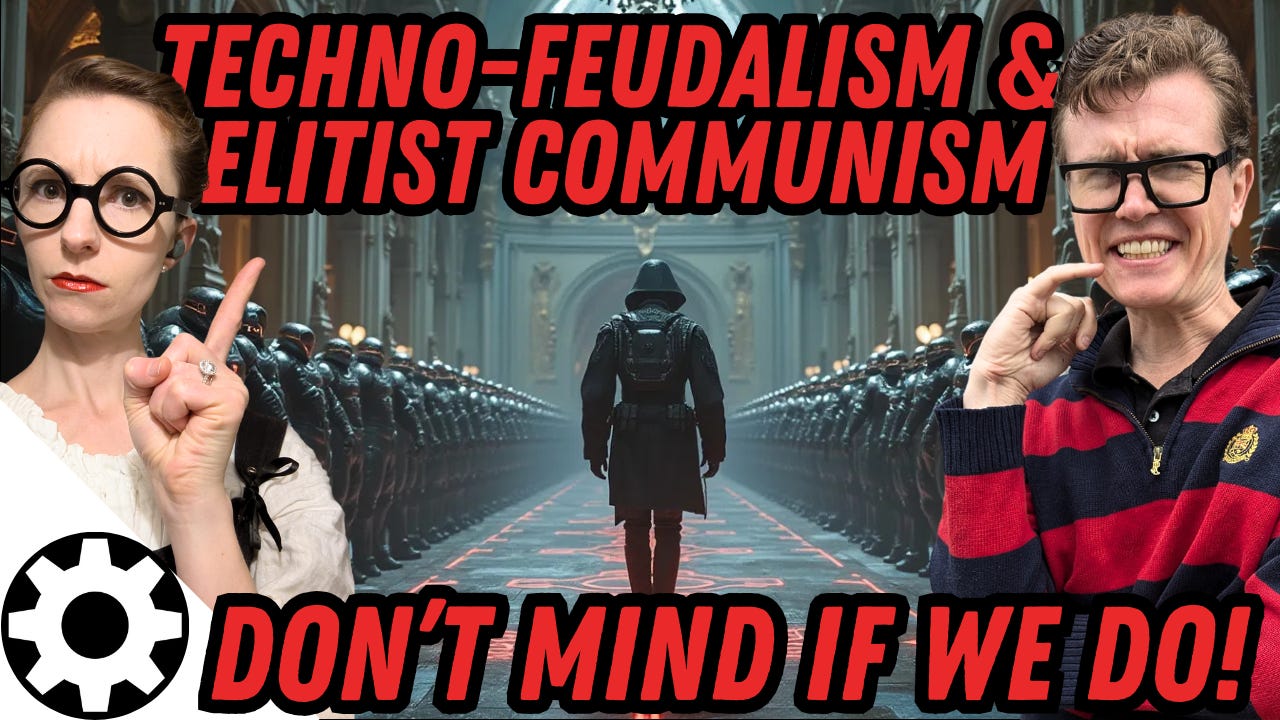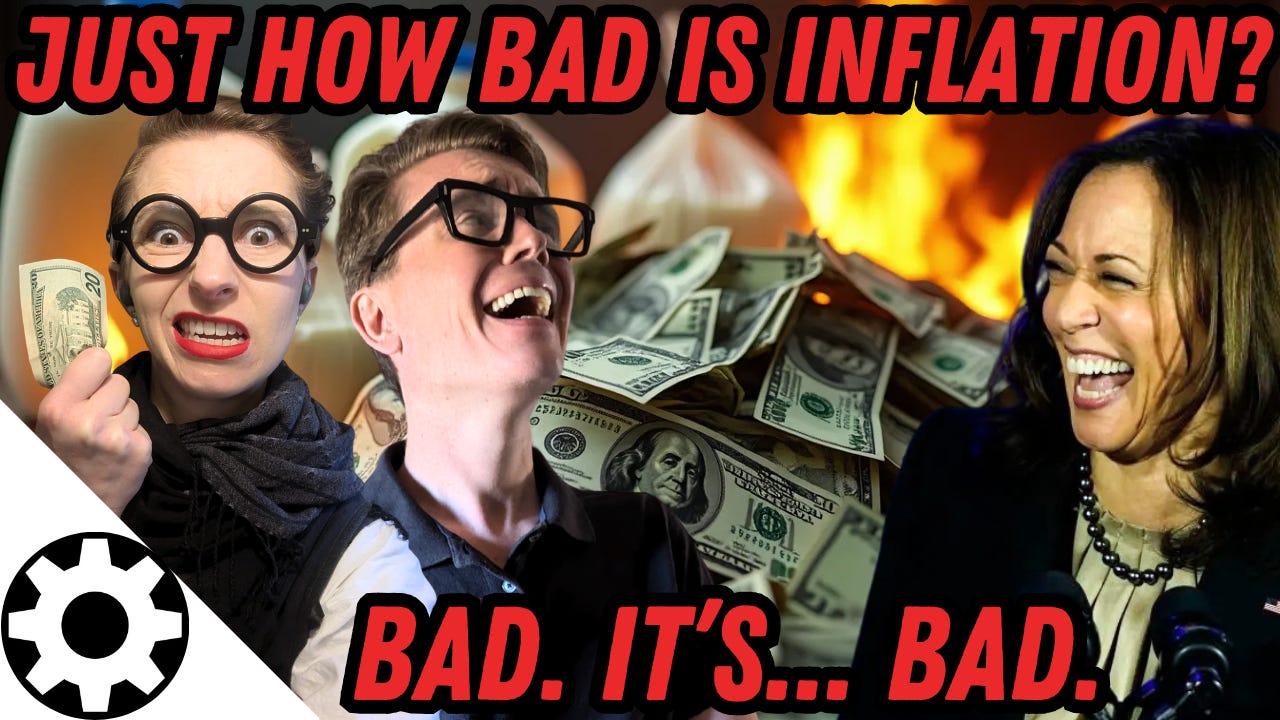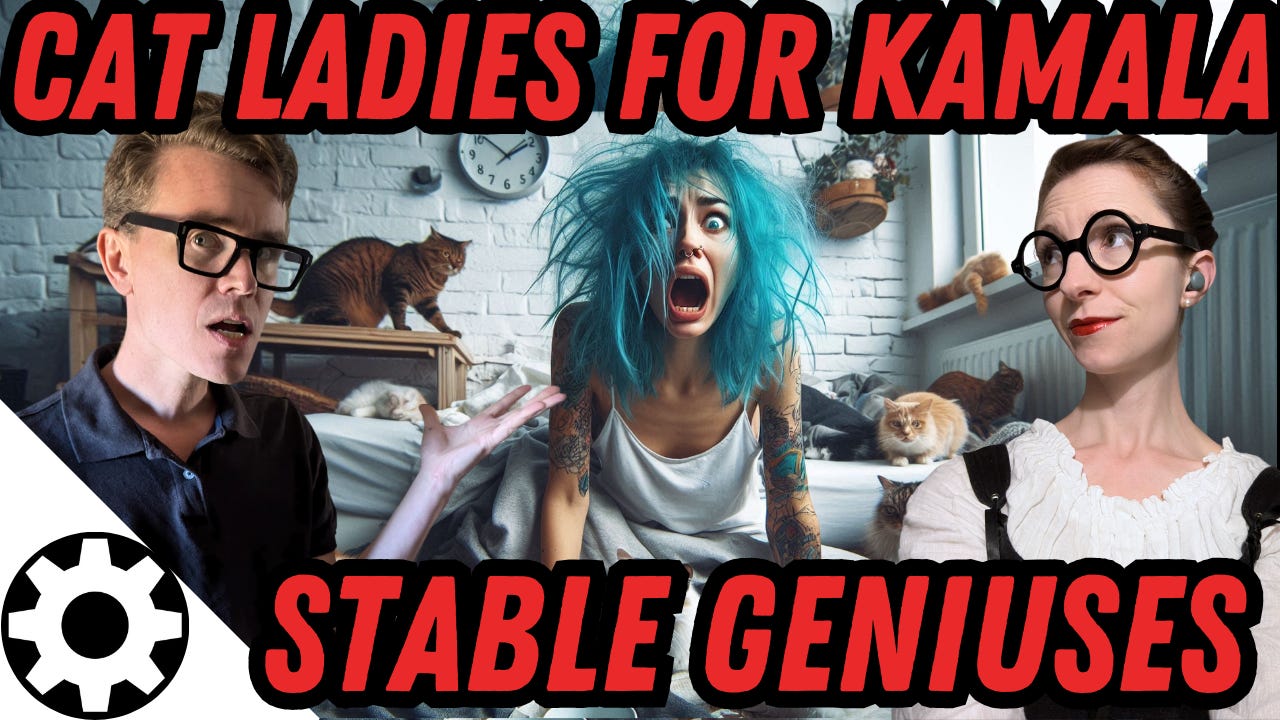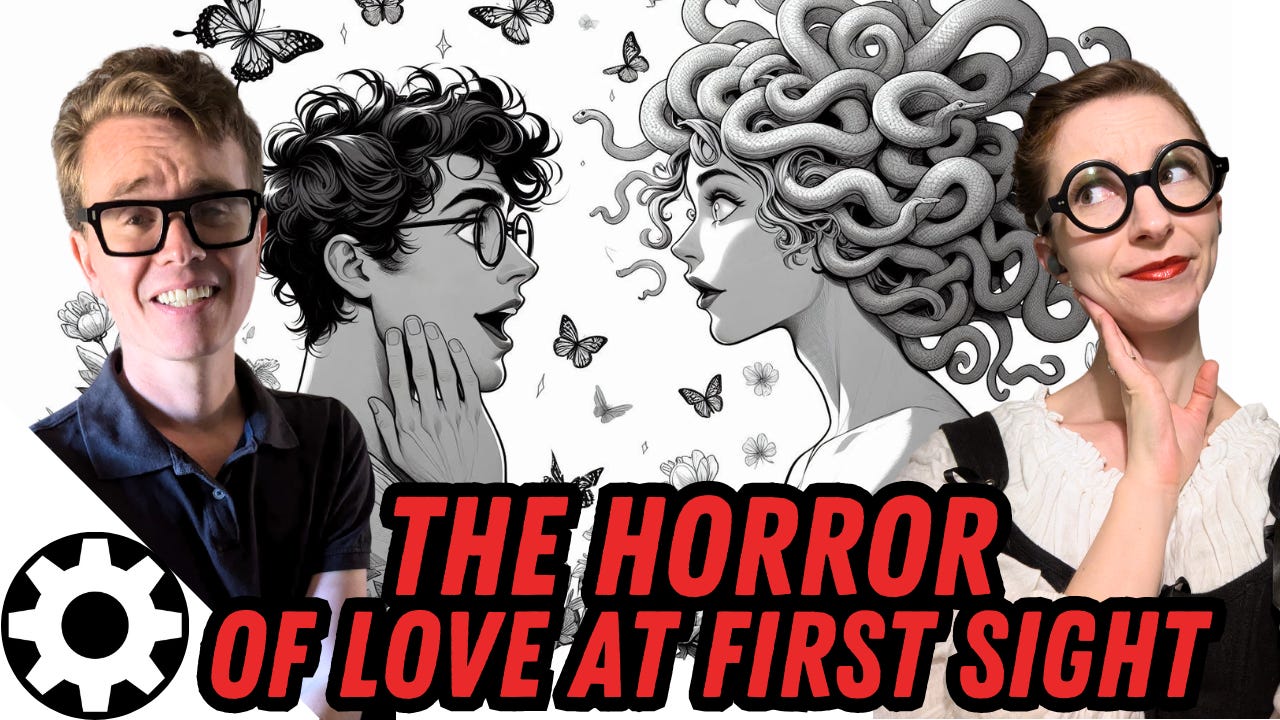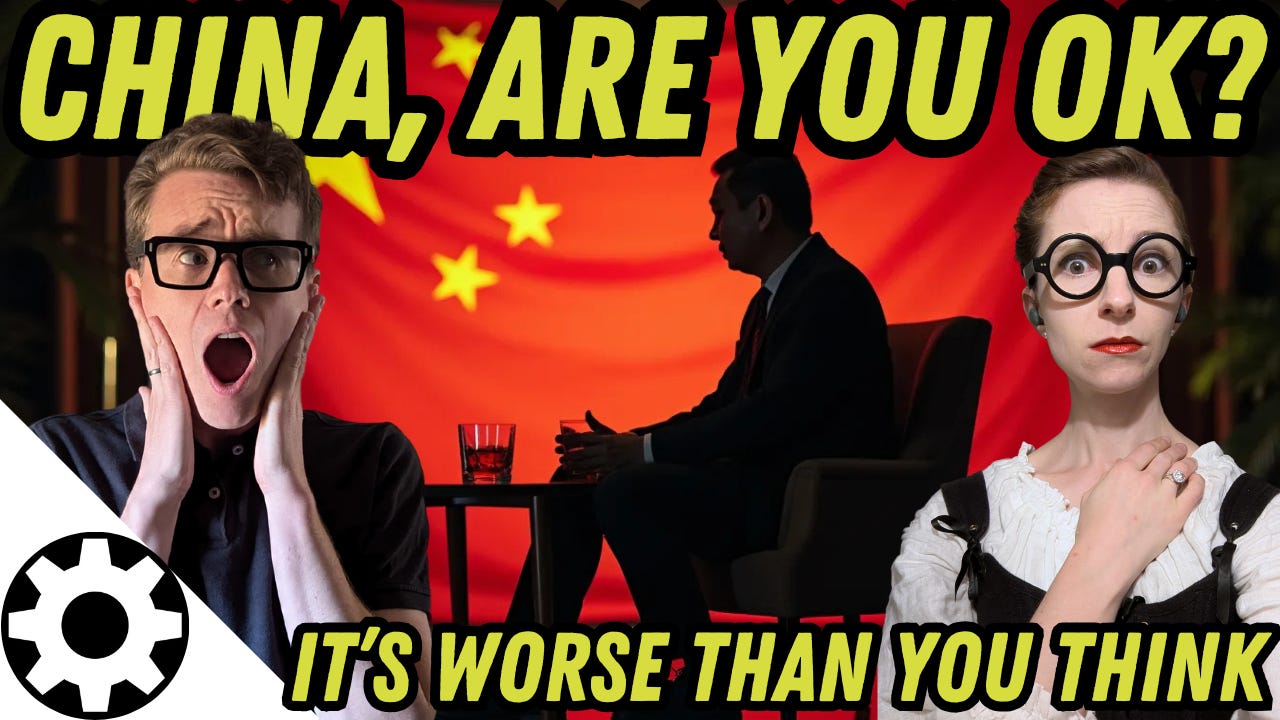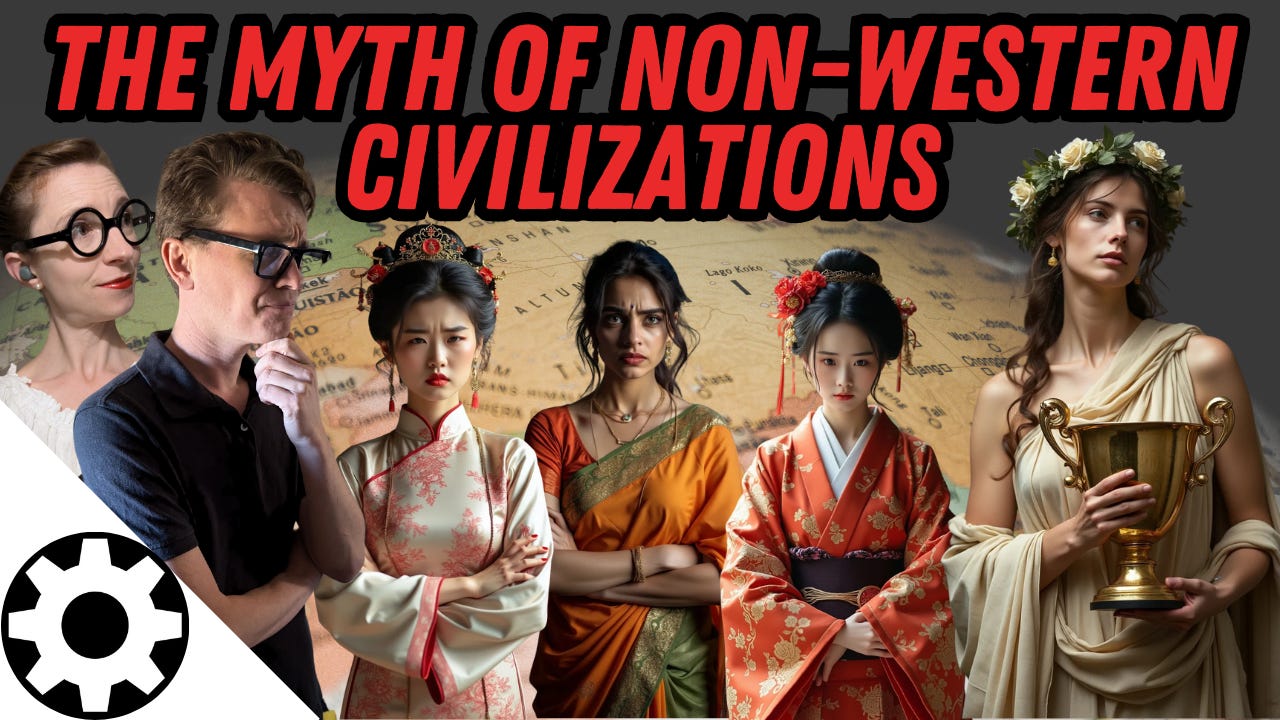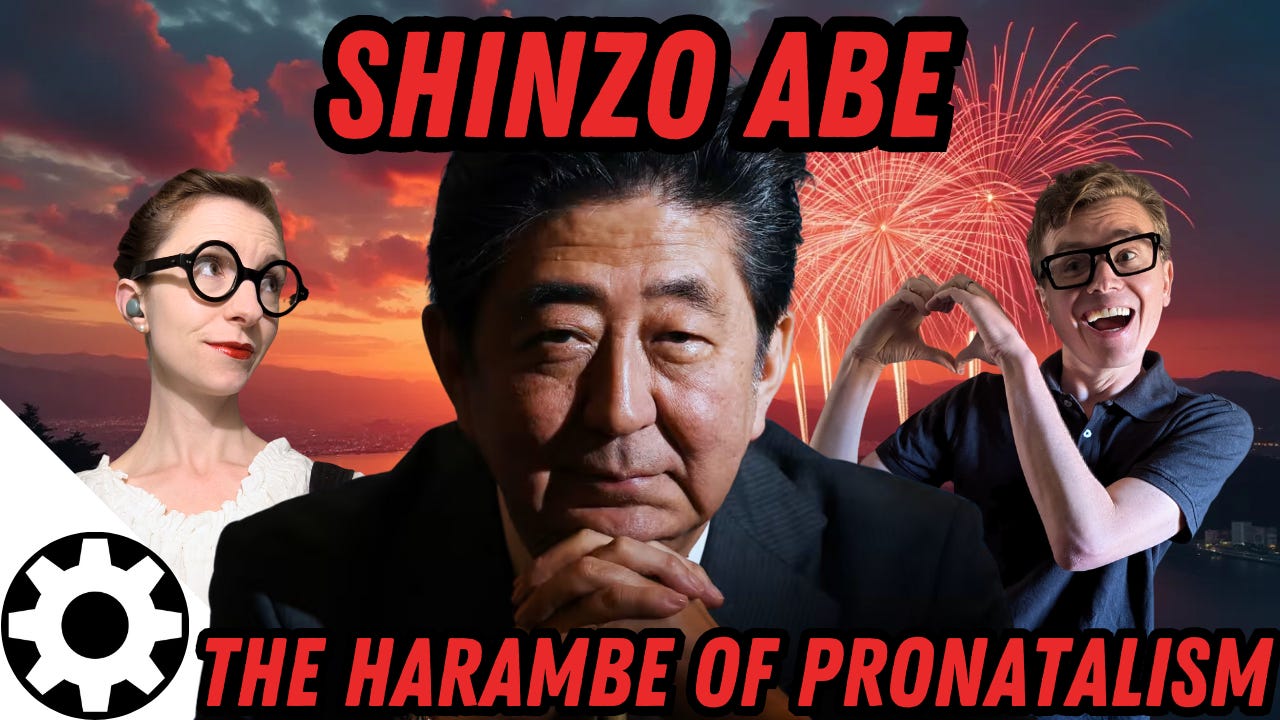Why is Kamala Bleeding Minority Voters? (Black, Hispanic, Arab, & Asian)
Description
In this insightful episode, we explore the evolving political affiliations among ethnic minorities, focusing on Black, Arab, and Hispanic voter groups. From the increasing support for the Republican Party among Black and Hispanic voters to the influence of fiscal conservatism and social policies, we unpack the reasons behind these shifts. We also touch on media portrayals, self-empowerment, and economic aspirations influencing these communities. Additionally, the discussion covers Kamala Harris' policies towards Black entrepreneurs, her controversial political moves, and how these developments shape the future of U.S. politics. Join us as we delve into these critical voter trends and their significant impact on the American political landscape.
[00:00:00 ]
Simone Collins: Hello, Simone. I'm excited to be here with you today. Today, we are going to be talking about a phenomenon this election cycle where Ethnic minorities have been moving very quickly more and more to voting Republican in the changeover from the Biden running for office to the Kamala running for office, which is really interesting to me because I think a lot of people would assume, Oh, now we've got a, you know, a multiracial, a black Indian woman who's, yeah, yeah.
for office. Like obviously she'll get more like Obama did more of the black vote to show up than historically did. And in yet we are seeing the exact opposite and not just the black vote, but basically across the board.
Speaker: Wasn't that the turn for our polling station?
Speaker 2: we know A, , shorter route to your, to our Democratic polling station. You know how us Democrats like a shortcut, like government spending to prop up the economy. Nothing more we love than those, , federal programs. You two
Speaker: are [00:01:00 ] Democrats, aren't you?
What? .
Speaker 2: Of course we are. You see the color of our skin, don't you? How could we not? Blindly vote democratic.
Would you like to know more?
Simone Collins: So we are one going to go over the numbers for each ethnic group. We're going to go over what might be causing this, and we are going to go over what this means for the future of American politics.
That is so cool. Let's do this.
So in the 2020 election, Biden won approximately 92 percent of the black vote. Only 8 percent of the black vote didn't vote for Biden.
That's insane. That, that is very impressive.
Yeah. Current polling shows Kamala leading Trump 78 percent to 15 percent among black voters.
Huge difference. Um, 26 percent of black men aged 18 to 40 said they would vote for Trump in the latest gen forward poll compared to 12 percent of black women in the same age group. This represents a major shift from 2020. And if you look at the polls that I sent you, [00:02:00 ] so this is mostly happening in young Black men, we see a really interesting phenomenon,
Speaker 4: Sir. Now people think that black voters are a monolith.
No, we're not.
Speaker 5: In fact, black Republicans alone are an extremely diverse group of people.
Simone Collins: Which is that with Black voters, unlike pretty much any other voter demographic you're going to look at, the younger they are, And it's proportional to their age, the more pro Republican they are.
And it is increasing with each generation here. So here we can look at two different polls. One is looking at different age groups. And it asks them, please assess your feelings towards Donald Trump on a scale from 0 to 10, where 0 is cold and 10 is very warm. And you see of the very warm category if you look at black voters over 65, it's only 4%.
If you look at black voters, 18 to 29, it's [00:03:00 ] 29%. What is going on? And just so people can get an idea of what this looks like in sort of a tiered way. It's 4% for the 65 plus to the 45, 64, it's 10%. For the 30 44, it's 19%. And then, you know, for the last group it's 29%. And you see the same thing in terms of the number who feel neutral to him.
It's significantly increasing over time. With the young age group, it's. 41 percent feel neutral to him only 7 percent in the oldest age group and in the youngest age group only 20, only 28 percent have a cold opinion of him, while 87 percent of the oldest age group do. Isn't that wild? And this is increasing still with every generation, so I would expect it to be more the next generation, more the next generation, more the next generation.
Yeah, which
is tempered, I guess, by young voter turnout [00:04:00 ] being lower. Yeah. But that, that's still very impressive.
Well, it does mean a permanent political shift. And, let's go to this next poll here. How welcoming, how welcoming do you think the Republican Party is to Black people? And again, you have the exact same thing.
If you're looking at not welcoming at all, it's 57 percent of the 65 plus group, but of the under 29 group, that's only 17 percent who have that perception. And if you look at the extremely welcoming category, 3 percent of the over 65 group, 11 percent of the 18 to 29 group.
Wow.
That's great. Yeah, well, and if you look at somewhat welcoming in the old age group, it's only 7 percent In the young age group, it's 31%.
Well, I mean, is this part of the whole youth political divide between women and men, whereby men are just getting increasingly conservative and women are getting conservative? And is it, could it be that women to a certain extent are even just [00:05:00 ] shoving men into a more conservative position through their mental and cultural toxicity?
I think it is. So I watched a bunch of interviews with black individuals on why they're voting for Trump. So I could say, you know, from my perception, I'd say, well, I assume that the racist way that Democrats keep talking about ethnic minorities is probably a pretty big play here. Like when. Hope not hate was talking to us.
They go, you say you support exceptional people having more kids in secret, but on your website, you say you support Hispanics having more kids. And I was like, I don't see a contradiction there. Why do you see a contradiction there? Or Obama's recent thing when black voters He goes, he's like, well, we have a huge problem with young male black voters and it's because they won't vote for a woman.
You know, they're very misogynistic. And I was like, that seems like a very racist opinion and not at all what I've seen anyone say. And so I think part of it is this [00:06:00 ] increasingly racist attitude that, you don't vote for me, you ain't black. Like this stealing of the black identity. And then. Removing anyone, like imagine you felt that way.
Like people said to you, you couldn't identify as whatever your core, like ethic or whatever identity was because you didn't hold ex political positions, which is what they're always saying. Like whenever, you know, there's a famous black Republican or something like that. They're like, well, they don't really count as black culturally speaking.
Here's what's so interesting though, is that I'm picking up on this for another episode right now I'm trying to do research on. What black lives matter as an organization raised and what they did with that money and one of the things that I'm seeing they did in 2020 sort of at their height when they got the most attention was create a pack and try to influence the vote and they decided that one of the most important areas where they needed to exert pressure was on black male voters.
Because they felt that they had the lowest turnout and the lowest [00:07:00 ] engagement. So their work really focused on engaging them and getting them to vote. But I feel like this very fact that there is this perception and I guess, acknowledgement of lower black male voter engagement for obviously Democratic voters.
Candidates and causes maybe kind of indicates like, guys, maybe they aren't really on your side. Like, maybe they're not really Democrats. Maybe that you're something you're, you're pitching to them isn't resonating. Maybe this whole, like, you know, trans free housing thing and like community work thing isn't really a game.
What they're into right now. Well, so
historically, when older black voters would vote Republican, the thing that drove them to do it was two things. One is, is it, it didn't feel like the policies were actually supporting the black community. You know, this is what you have was like clarence Thomas, , and you know, he's very anti things like affirmative action because he felt it hurt the black community, right? And a lot of older [00:08:00 ] blacks would side with Republicans sometimes because they agreed with them on social issues.
Whether it was, you know, Being more resistant to LGBT stuff whether it was which the black community is generally not very pro when contrasted with white voters whether it was being more conservative on abortion whether it was being more conservative It was on social issues What's very interesting is the shift in the black community now among young blacks to being more republican is not about Being more conservative on social issues.
It appears to be predominantly Two fold One, or I'd say threefold. One, they feel like we've been trying this Democrat thing forever. They don't actually seem to care about us. They never actually seem to do anything for us. And it appears that the Republicans actually try when they get in office for us.
And so that was one thing. The, the second thing was they appear to be more fiscally conservative than previous generations. And I'll run through some quotes here that seem to [00:09:00 ] indicate this to me, but it appears that they're mostly voting. For Repu

